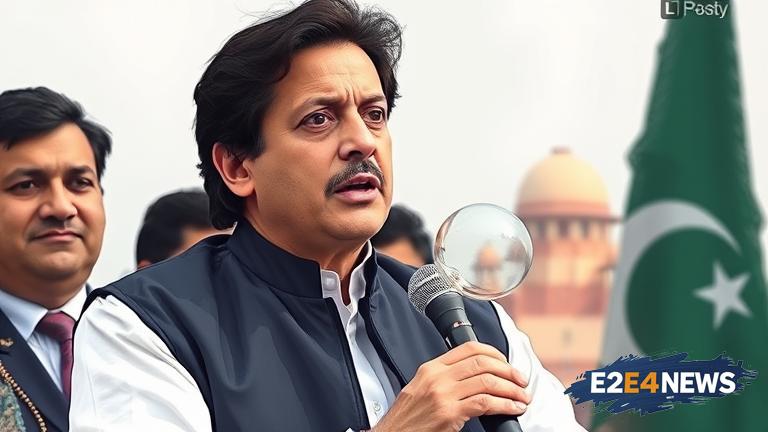Imran Khan, the former Prime Minister of Pakistan, has filed a petition with the Supreme Court of Pakistan, seeking to challenge the denial of bail in several cases related to the May 9 incidents. The cases in question pertain to the violent clashes that erupted between Khan’s supporters and law enforcement agencies on May 9, resulting in widespread property damage and injuries. Khan’s lawyers argue that the denial of bail is a violation of their client’s fundamental rights, as guaranteed by the Constitution of Pakistan. The petition contends that the lower courts’ decisions to deny bail were based on flawed reasoning and a misinterpretation of the law. Khan’s legal team has requested the Supreme Court to review the decisions and grant bail to their client. The cases against Khan include charges of terrorism, rioting, and damaging public property. The former Prime Minister has maintained that the cases are politically motivated and aimed at disqualifying him from participating in the upcoming general elections. Khan’s party, the Pakistan Tehreek-e-Insaf (PTI), has accused the government of using the judiciary to silence their leader and suppress their political activities. The Supreme Court has yet to fix a date for the hearing of Khan’s petition. The development has sparked a heated debate in the country, with many questioning the independence of the judiciary and the rule of law in Pakistan. The opposition parties have welcomed Khan’s decision to approach the Supreme Court, terming it a positive step towards upholding the principles of justice and democracy. On the other hand, the government has defended the actions of the law enforcement agencies, stating that they were necessary to maintain public order and prevent further violence. The May 9 incidents have been widely condemned by human rights organizations and civil society groups, who have called for a thorough investigation into the clashes and the subsequent crackdown on Khan’s supporters. The international community has also expressed concern over the situation, with many countries urging the Pakistani government to respect the fundamental rights of its citizens and ensure a free and fair electoral process. As the Supreme Court prepares to hear Khan’s petition, the country remains on high alert, with many fearing a further escalation of tensions and violence. The outcome of the case is likely to have significant implications for the future of Pakistani politics and the rule of law in the country. The Supreme Court’s decision will be closely watched by the international community, which has been critical of Pakistan’s human rights record and the treatment of opposition leaders. In recent years, Pakistan has faced numerous challenges to its democratic institutions, including the ouster of Khan as Prime Minister and the subsequent crackdown on his party. The country’s economy has also been struggling, with high inflation and a large trade deficit. The upcoming general elections are expected to be highly contested, with Khan’s party and the ruling coalition locked in a fierce battle for power. The elections will be a crucial test of Pakistan’s democratic institutions and the ability of the country to hold free and fair elections. The international community has urged the Pakistani government to ensure a level playing field for all parties and to prevent any attempts to rig the elections. As the country prepares for the elections, the Supreme Court’s decision on Khan’s petition will be a critical factor in determining the outcome of the polls. The court’s ruling will also have significant implications for the future of Pakistani politics and the rule of law in the country.
